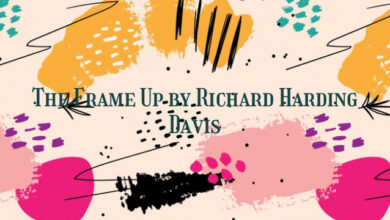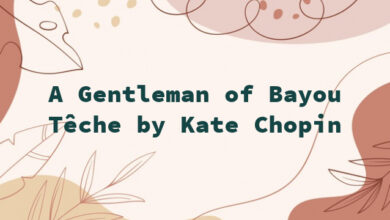
The Odds by Ethel M. Dell
“If he comes my way, I’ll shoot him!” said Dot Burton, her blue eyes gleaming in her boyish, tanned face. “I’m not such a bad shot, am I, Jack?”
“Not so bad,” said Jack, kindly. “But don’t shoot at sight, or p’r’aps you’ll shoot a policeman–which might be awkward for us both!”
“As if I should be such an idiot as that!” protested Dot. “I wasn’t born yesterday, anyhow.”
“No?” said Jack. “Somehow you look as if you were.”
“Don’t you be a donkey, Jack!” said his young sister, with an impudent snap of the fingers under his nose. “Being ten years older than I am doesn’t qualify you for that superior pose. You’re only a man, you know, after all.”
“Buckskin Bill is only a man, but he’s a pretty tough proposition,” said Burton, with a frown.
She smoothed the frown away with caressing fingers. “I know. That’s why I’d like to shoot him. But he’s sure to be caught now, isn’t he? They’ve got him in a trap. He’ll never wriggle through with Fletcher Hill to outwit him. You said yourself that with him on the job the odds were dead against him.”
“Oh, I know. So they are. But he’s such a wily devil. Well, I’d better be going.” Jack Burton arose with the deliberate movements of a heavy man. “I’m sick of this business, Dot. If it weren’t for you, I believe I’d chuck it all and go into business in a town.”
“Oh, darling! How silly!” protested Dot. “What a good thing I came out when I did! Things seem to be at a rather low ebb with you. But cheer up! What’s a few head of cattle when all’s said and done? When once this rascal is laid by the heels, you’ll make up quicker than you know. Of course you will. Don’t let yourself get downhearted! What is the good?”
He smiled a little. There was something heartening in the girl’s slim activity of pose apart from her words. She looked indomitable. He pulled her to him and kissed her.
“Well, take care of yourself, Dot! You won’t be frightened? You needn’t be. He won’t come your way. Hill has sworn solemnly to keep an extra guard in this direction. He may call around himself before the day is over. It wouldn’t surprise me. Don’t shoot him if he does! At least, give him a feed first!”
“Oh, really, Jack!” the girl protested. “I shall be cross with you before long. You’d better go quick before it comes on.”
She put her arms around his neck and gave him a tight hug. Her sunburnt face was pressed to his. “Now, you won’t do anything silly?” she urged him, softly. “I don’t like parting with you in this mood. I wish I were coming too.”
“Rubbish! Rubbish!” he said. “You stay at home, little shepherdess, and look after the lambs! I won’t be late back. Mind you are civil to Fletcher Hill if he turns up! He’ll be a magistrate one of these days if he plays his cards well.”
“If he catches the biggest cattle-thief in Australia?” suggested Dot, screwing her face into a very boyish grimace. “I wouldn’t care to get promotion for that job, if I were a man. But I’ll be vastly polite to him if he turns up. You’ve never seen me doing the pretty, have you? But I can–awfully well–when I try.”
Her brother laughed. “Oh, don’t be too pretty, my child! It’s a dangerous game. Good-bye! Don’t go far away!”
“My dear man! As if I should have time!” ejaculated Dot.
She gave him another squeeze and let him go.
There were a great many things to be done that day, things which a mere ignorant male would never have dreamt of. There was bread to be baked, an evening meal to be prepared, countless household duties waiting to be done, and work enough in Jack’s wardrobe alone to keep an ordinary woman busy for a week. Poor Jack! He was not a great hand at needlework. She had been shocked at the state in which she had found him. But she had not shirked her responsibilities. And more than ever was she glad now that she had come to him. For he needed her in a moral sense as well. She was too much of a “new chum” to help him in any very active sense outside the homestead at present. But he needed a good deal of moral backing just at that moment. She had come to him straight from England, and full of enthusiasm. He had hewn his own way and begun to enjoy prosperity. But she had arrived to find that prosperity temporarily checked. A gang of cattle-thieves were making serious depredations among his stock.
The police were hot on the trail, and it was believed that the gang had been split up, but so far no notable captures had been made. Buckskin Bill, the leader, was still at large, and while this remained the case there could be no security for any one. Every farmer in the district was keen on the chase, expecting to fall a victim.
And–there was no doubt about it–Buckskin Bill was in a very tight corner. Inspector Hill had the matter in hand, and he was not a man to be lightly baffled. Jack regarded him with wholehearted admiration. But somehow Dot, the new arrival, felt curiously prejudiced against him. She wanted Buckskin Bill to be caught, but she could not help hoping that this astute Inspector of Police would not be his captor. She was sure from Jack’s description that she would not like the man, and as she went about her work she earnestly hoped that he would not come her way, at least in her brother’s absence.
She was busy indoors during the whole of the morning. As midday approached the heat became intense. Jack usually returned for a meal at noon, but she was not expecting him that day. He had joined the chase, and had taken with him every available man. She might have felt lonely if she had not been so engrossed. As it was, she hummed cheerily to herself as she went to and fro. There were so many things to think about, and it was such an interesting world in which she found herself.
In the early afternoon she went out to feed a few motherless lambs that her brother had placed in her charge. She stood in the shelter of a great barn with the little things clustering around her, while Robin, the old black hound, lay watching and snapping at the flies. Miles and miles of pasture stretched around her, broken here and there by thick scrub and occasional groups of blue gum trees.
The hot glare of the afternoon sun made the eyes ache, and she was glad when her task was over. When she stood up at length she was feeling a little giddy, and she leaned for a moment against the barn wall to steady herself. A rank growth of grass grew all about her feet, and as she stood there gazing rather dizzily downwards she saw a ripple pass along it close to the building.
Any but a “new chum” would have known the meaning of that small disturbance, for there was no breath of air to cause it. Any but a “new chum,” being quite defenceless, would have beaten instant and swift retreat.
But Dot Burton in her inexperience had no thought of evil. She was only curious. She forgot her weariness, and bent down to watch the moving grass.
At the same moment Robin suddenly raised his head and looked keenly in the direction of the farm, with a growl. The girl barely heard him, so interested was she. She even stooped and parted the tall grass with her hands when unexpectedly it ceased to move.
The next instant she started back with a wild cry of horror. For it was as if the grass itself had suddenly come to malignant life under her hands. A shape–long, thin, vividly green–rose up before her, and swayed with an angry hiss.
Her cry seemed to galvanize Robin into action, for he sprang up fiercely barking, but his attention was not directed towards her. He leapt instead towards the house, yelling resentment as he went. And in a flash the green evil struck at the bare brown arm!
Dot shrieked again, shrieked like a demented creature, and in a moment, with hands flung wide, she was fleeing across the sun-baked yard.
She reached the open door immediately behind Robin, and sprang in headlong. Robin had ceased to bark, and was fawning at the feet of a man who had evidently just entered. He was bent down over the dog, fondling him with one hand. In the other something bright gleamed, and as he straightened himself the girl saw that it was a revolver; but she was too agitated to take much note of the fact.
She burst in upon him in breathless, horrified distress. “I’ve been bitten!” she cried to him. “Bitten by a snake!”
“Where?” he said.
He had her by the arm in a second and was pushing up the loose holland sleeve. Later she marvelled at his promptitude, his instant intuition. At the moment she was too terrified, too near collapse, to notice any of these things.
He pushed her down upon a chair and knelt beside her. She found herself staring down at a shock of straw-coloured hair, while the owner of it sucked and sucked with an almost brutal force at a place in the crook of her arm that felt as if a red-hot needle had been plunged into it. She could feel the drawing of his teeth against her flesh. It was a sensation almost more horrible than the actual snake-bite had been.
Twice he turned his head and spat into the hearth, and she saw that his face was smooth and young, the colour of sun-baked brick.
At last he looked up at her with the most extraordinarily blue eyes she had ever seen, and said, with a kindly twinkle in them, “I don’t think you’ll die this time, missis.”
She looked from him to her arm. The bite showed no more than the sting of a nettle, but around it was the deep impress of his teeth. Certainly he had done his task thoroughly.
The kettle was singing over the fire. He got to his feet and patted Robin on the head. “Let’s wash it,” he said. “Is there a basin handy?”
Dot sat in her chair, feeling rather weak. He fetched a bowl and set it on a chair by her side. He poured water into it from the kettle.
She looked up at him rather apprehensively. “I needn’t scald it, need I?”
He smiled down at her in instant reassurance, a vivid smile that warmed her fear-chilled heart. His teeth were white and regular, like the teeth of a young wild animal.
“There’s some cold water somewhere, isn’t there?” he said.
She told him where to find it, and he cooled the steaming water to a temperature that she could endure without flinching. Then he made her rest her arm in it.
“That’ll comfort it,” he said. “Now, have you got any spirits in the house?”
“I don’t drink spirits,” she said quickly.
He smiled again. “No? But you must this time–just to complete the cure. Tell me where to find them!”
His smile was certainly magnetic, for she told him without further protest.
When he brought the spirits, she looked at him for the first time with active interest.
“I suppose you are Inspector Hill,” she said.
He was pouring whisky into a glass. He gave her a sidelong glance. “Now that’s a very clever guess,” he said. “What put you on to that?”
She smiled, mainly because he had meant her to smile. “I’ve been half expecting you all day,” she said.
He looked down at her more fully as he finished his task. “That’s very interesting,” he said. “Who told you to expect me?”
“My brother–Jack Burton,” she explained.
“Oh! Jack Burton is your brother, is he?” He contemplated her thoughtfully for a second or two. “Well, I seem to have turned up at the right moment,” he said.
“Yes.” She leaned forward with flushed face upraised. “And I haven’t said ‘Thank you’ yet. I’m so grateful to you. I can’t tell you how grateful.”
“Don’t!” he said. “Don’t! Drink this instead! Drink to the lucky chance that sent me your way! I’m proud to have been of use to you.”
She took the glass unwillingly. “I’m sure I shall hate it.”
“It’s the best antidote to snake-poison out,” he said. “I swear it won’t upset you. If it makes you sleepy, well, you’re in the right place and safe enough.”
She liked his utterance of the last words. They had a genuine ring. “But, if I drink, so must you!” she said. “And eat, too! Jack said I was to give you a meal if you came.”
He smiled again, a large, humorous smile. “That’s the kindest thing Jack Burton has ever done,” he said, with warm approval. “I’ll join you with pleasure, missis. This man-trapping business is hungry work for all of us.”
Dot frowned a little. It did not please her to be reminded of his mission. Her former prejudice began to revive within her, his kindness notwithstanding.
“I don’t like the thought of it myself,” she told him abruptly. “But, of course, I’m only a ‘new chum.'”
“What?” he said, pausing in the act of pouring himself out a drink. “That sounds as if you want that scoundrel Bill to get away.”
She coloured in some confusion under his look. How could she expect to make a policeman understand? “No–no!” she said, with vehemence. “I’m not quite so soft as that. I’d shoot him myself if he came my way. But I hate to think of a dozen men all on the track of one. It really isn’t fair.”
He laughed, but without superiority. “And yet you’d swell the odds? Do you call that fair?”
Dot paused to collect her arguments. It seemed that possibly even this machine of justice carried a small fragment of sympathy in his soul. Certainly he was not the judicial automaton she had expected him to be.
“It’s like this,” she said. “I’d shoot him if he came my way because he has done us a lot of mischief, and I want to stop it. But I’d do it squarely. I wouldn’t do it when he wasn’t looking. And I wouldn’t–ever–make it my profession to hunt down criminals and even employ black men to help. I think that’s hateful. I couldn’t live that way. I’d be above it.”
“I see.” He lifted his glass to her in a silent toast, and drank a deep draught. “Then if you chanced to know where he was, I take it you’d just settle him yourself, if you could. But you wouldn’t in any case give him away to the police. Is that your point of view?”
“It isn’t unreasonable, is it?” she said, with a touch of eagerness. “I mean, if you weren’t what you are, wouldn’t you do the same?”
“I don’t know,” he said, smiling at her whimsically. “You see, being what I am handicaps me rather. I haven’t much time for working out nice problems.”
Dot leaned back again. He had disappointed her. But she could not neglect her duty on that account. She took her arm out of the water and dried it. Then she arose.
“How does it feel?” he said.
“Oh, only a little stiff,” she answered, turning away. “Now I am going to get you something to eat. Sit down, won’t you?”
Her tone was distant, but he did not seem to notice any change. He thanked her and sat down, facing the open door. Robin sat pressed against his knee. It was evident that the dog entertained no doubts regarding the visitor. Having passed him as respectable, he accepted him without reserve.
This fact presently occurred to Dot as she waited upon her visitor, and, since it was not her nature to prolong an uncomfortable situation, she broke the silence to comment upon it.
“He doesn’t take to everyone at sight,” she said.
“No?” She saw again that frank, disarming smile. “You see, missis, I know the ways of animals, and a very useful sort of knowledge I’ve found it.”
“I wonder why you call me missis,” she said. “I’m Jack’s sister, not his wife.”
He looked up at her. “But you’re the boss of the establishment, I take it?”
She smiled also half against her will. “I’m rather new at present. But no doubt I shall learn.”
“And then you’ll go and boss some one else?” he suggested.
She coloured a little. “No. I shall stick to Jack,” she said, with decision.
“Lucky Jack!” he said. “But you’re quite right. There’s no one good enough for you around here. We’re a low breed mostly.”
“I didn’t mean that!” she protested, in quick distress. “I never thought that!”
“I know,” he said. “I know. But you’ve sort of felt it all the same. Me, for instance!” His intensely blue eyes challenged her suddenly. “Haven’t you said to yourself, ‘That man may be up to local standard, but he’s made of shocking crude material’? Straight now! Haven’t you?”
She hesitated, her face burning under his direct look. “Do you–do you really want to know what I think?” she said.
“I do.” There was something uncompromising in the brief rejoinder, yet somehow she did not find him formidable.
She answered him without difficulty in spite of her embarrassment. “I think, then, that it isn’t you yourself at all that I feel like that about. It’s just your profession.”
“Ah!” He began to smile again. “Once live down that, and I might be possible. Is that it?”
She nodded, still flushed, yet curiously not uneasy. “Something like that. Why can’t you be a farmer like Jack?”
“I wish I were,” he said, unexpectedly.
“Why?” The word slipped out almost in spite of her, but she felt she must have an answer.
He answered her with his eyes full on her. “Because I’d like to lead the sort of life you would approve of,” he said. “I’ve a notion it would be worth while.”
She turned aside from his look. “It’s only a matter of opinion, of course,” she said.
“Is it?” he said. He turned his attention to the meal before him, and ate rapidly for a few moments while he considered the matter. At length: “Yes,” he said. “I suppose you’re right. Anyhow, you don’t feel drawn that way. You won’t feel a bit pleased if Buckskin Bill gets caught by the police this journey after this?”
Dot shook her head. “I don’t think a man ought to be tracked down like a wild beast,” she said, resolutely.
The blue eyes that watched her kindled a little. He finished what was on his plate and pushed it from him.
“I’m greatly obliged to you,” he said, “for your hospitality. I needed it–badly enough. You’ll thank Jack for me, won’t you? I must be going now. But there’s just one thing I’d like to say to you first.”
He got up and stood before her. It was impossible not to admire his splendid height and breadth of chest. He could have lifted her easily with one hand. And yet, strangely, though she felt his power he did not make her aware of her own weakness.
She looked up at him. “Yes? What is it?”
“Just this, Miss Burton,” he said, and somehow he lingered over the name in a fashion that made it sound musical in her ears. “I’d like to strike a bargain with you–because you’ve made a sort of impression on me. I’m not meaning any impertinence. You know that?”
“Go on!” she whispered, almost inaudibly.
He went on, bending slightly towards her. “The odds are dead against Buckskin Bill escaping, but–he may escape. If he does, will you–the next time I come to see you–treat me–without prejudice?”
He also was almost whispering as he uttered the last words.
She drew a sharp breath and looked at him. “You–you–are going to let him go?” she said, incredulously.
He did not answer. His eyes were drawing hers with a magnetism she could not resist. And they thrilled her–they thrilled her!
“The odds are dead against him,” he said again, after a moment. “Is it–a bargain?”
Her heart gave a queer little jerk within her. She stood motionless for a space. Then, with a little quivering smile, she very, very slowly gave him her hand.
He took it into his great brown one, and though his touch was wholly gentle she felt the force of the man throbbing behind it, and it seemed to surge all around and within her.
He stood for a second as if irresolute or uncertain how to treat her. Then, with a wordless sound that needed no interpretation, he pushed back the sleeve from the place whence he had sucked the poison. It showed only a little red now. He bent very low until his lips pressed it again. Then for one burning moment they neither moved nor breathed.
The next thing that Dot realized was the passing of his great figure through the doorway out of her sight. She saw him don his slouch hat as he went.
She cleared the table again and sat down to her work. But somehow all energy had gone from her. A great lassitude hung upon her. Perhaps it was caused by the heat, or possibly by the whisky he had made her drink. There was no resisting it. It pressed her down like a physical weight. She gave herself up to it at last, and leaning back in her chair like a tired child she slept.
Robin lay at her feet. The afternoon crawled away. Like the enchanted princess of old, she reclined in a slumber so deep that life itself seemed to be suspended.
The sun began to slant towards the west, and the pastures took on a golden look. The lambs gambolled together with shrill bleatings. But Dot Burton slept on in her chair, a faint smile on her face of innocence. Though she could not have been dreaming in so deep a repose, her last thought ere she slept must have held happiness. Her serenity lay like a tender veil upon her.
It was drawing towards evening when Robin suddenly raised his head again with a deep growl. There came the sound of footsteps through the open door. The girl stirred and slowly awoke.
She stretched up her arms with a sleepy movement, and then, as voices reached her, roused herself completely and got to her feet.
Her brother and another man–a tall, lantern-jawed stranger–were on the point of entering.
Jack led the way. “Halloa, Dot!” he said. “Have you seen anything of our man? He’s broken cover in this direction in spite of us. You haven’t shot him by any chance, I suppose?”
Dot looked from him to the man behind him.
“Inspector Hill,” said Jack. “Eh? What’s the matter?”
“Nothing–nothing!” said Dot. Yet she had gone back a step as if she had been struck. She held out her hand to the policeman. “How do you do? I–I–am very pleased to meet you. So you haven’t caught him after all?”
Inspector Hill was looking at her keenly. He wore a sardonic expression, as of one who knows that he has been outwitted. “I have not, madam,” he said. “Neither, I presume, have you?”
She shook her head, looking him straight in the face. “No, I haven’t. I am afraid I have been asleep. Are you sure he passed this way?”
Her eyes were clear and candid as the eyes of a boy. Inspector Hill turned his own away.
“Yes. Quite sure,” he said, with brevity.
“He’s a slippery devil,” declared Jack Burton. “Sit down, man! My sister is a ‘new chum.’ She probably wouldn’t have known him from a man on the farm if she’d seen him. In fact, if you’d turned up here by yourself she might have shot you–on suspicion.”
“I probably should,” said Dot, coldly.
She did not like Inspector Hill, and her manner plainly said so.
At her brother’s behest she set food before them, for they were hot and jaded after their fruitless day; but she left the duties of host entirely to him, and as soon as possible she went away with Robin to feed the lambs.
A wonderful glow lay upon the grasslands. It was as if she moved through a magic atmosphere upon which some enchantment had been laid. Since that wonderful sleep of hers all things seemed to have changed. Had it all been a dream? she asked herself. Then, shuddering, she turned up her sleeve to find that small red patch upon her arm.
She found it. It tingled to her touch. Yet she continued to finger it with a curious feeling that was almost awe. She thought it must be the memory of his kiss that made it throb so hard.
Some one came softly up behind her. An arm encircled her. She turned with the day-dream still in her eyes and saw her brother.
She pulled down her sleeve quickly, for though his face was kind, he seemed to look at her oddly, almost with suspicion.
“Had a quiet day?” he questioned, gently.
She leaned against his shoulder, feeling small and rather uncomfortable. “I–I was very busy all the morning,” she said, evasively.
“And in the afternoon?” he said.
She nestled to him with a little coaxing movement. “In the afternoon,” she told him softly, “I went to sleep.”
“Yes?” he said.
“That’s all,” said Dot, lifting her face to kiss him.
He took her chin and held it while he looked long and searchingly into her eyes.
“Dot!” he said.
She made a little gesture of protest, but he held her still.
“Dot, tell me what has been happening!” he said.
She had begun to tremble. “I’ll tell you,” she said, “when Inspector Hill has gone.”
“Tell me now!” he said.
But she shook her head with tightly compressed lips.
“You have seen the man!” he said.
Dot remained silent.
His face grew grim. “Dot! Shall I tell you what Hill said to me just now?”
“If you like,” whispered Dot.
“He said, ‘She has seen the man, and he has squared her. It’s a way he has with the women. You’ll find she won’t give him away.'”
That stung, as it was meant to sting. She flinched under it. “I hate Inspector Hill!” she said, with vehemence.
He smiled a little. “I don’t suppose that fact would upset him much. A good many people don’t exactly love him. But look here, Dot! You’re not a fool. At least, I hope not. You can’t seriously wish to shield a thief. Only this morning you were going to shoot him!”
“Ah!” she said. And then suddenly she pulled up her sleeve and showed him the mark upon her arm. “But he has saved my life since then,” she said.
“What?” said Jack. He caught her arm and looked at it. “You’ve had a snake-bite!” he said.
“Yes, Jack.”
His eyes went back to her face. “Why didn’t you tell me before? What kind of snake was it?”
She told him, shuddering. “A horrible green thing–green as the grass. I think it had some black marking on its back. I’m not sure. I didn’t stop to see. I–oh, Jack!” She broke off in swift consternation. “There is a dead lamb!”
“Ah!” said Jack, and strode across to the barn where it lay, stark and lifeless in the shade in which it had taken refuge from the afternoon heat.
“Oh, Jack!” cried Dot, in distress. “What can have happened to it? Not–not that hateful snake?”
“Not much doubt as to that,” said Jack, grimly. “No, don’t look too close! It’s not a pretty sight. And don’t cry, child! What’s the good?”
He drew her away, his arm around her, holding her closely, comforting her. “It might have been you,” he said.
She lifted her wet face from his shoulder. “It was–it would have been–but for–“
“All right,” he interrupted. “Don’t say any more!”
He left her to recover herself and went back to Fletcher Hill, sardonically awaiting him.
“On a wrong scent this time,” he said. “She’s lost one of the lambs from snake-bite, and it’s upset her. She’s a ‘new chum,’ you know.”
“I know,” said Inspector Hill.
Jack Burton leaned upon the table and looked him in the eyes. “My sister is not a detective,” he said, warningly. “Buckskin Bill has been one too many for us this time. The odds were dead against him, but he’s slipped through. And I’ve a pretty firm notion he won’t come back.”
“So have I,” said Inspector Hill, unmoved.
“And a blasted good job too!” said Jack Burton, forcibly.
A gleam of humour crossed the Inspector’s face. He pulled out his pipe with a gesture that made for peace.
“If I were in your place,” he said, “I daresay I’d say the same.”




